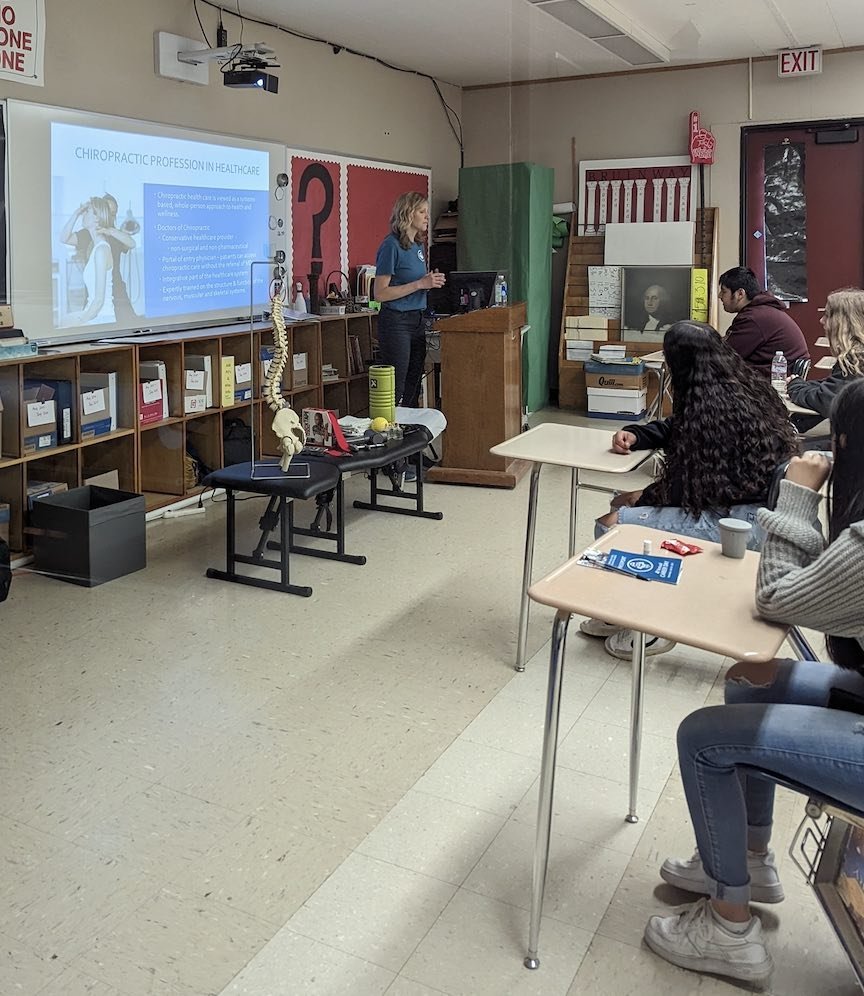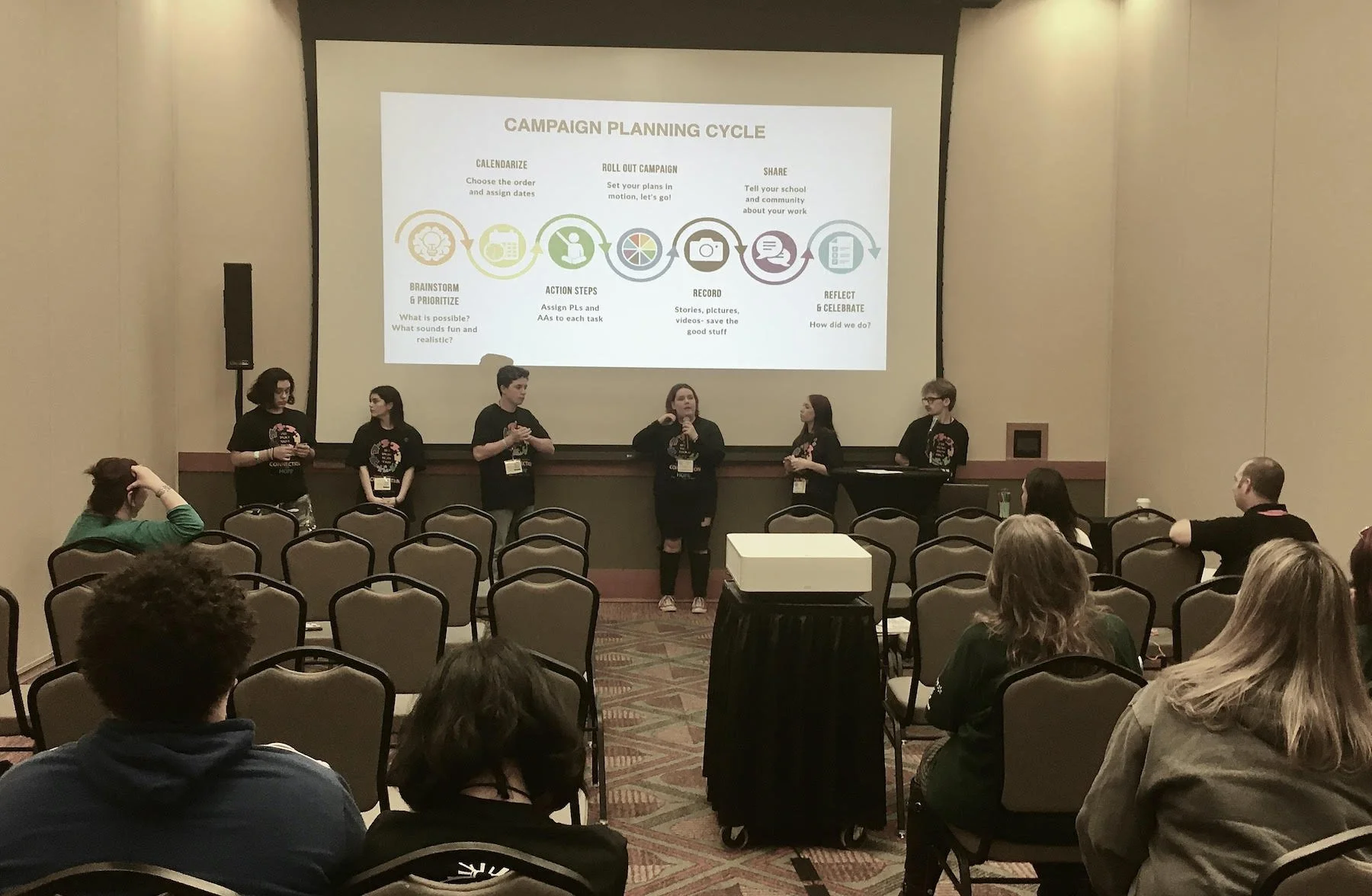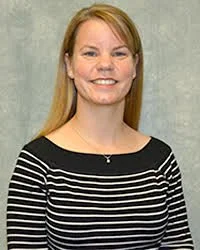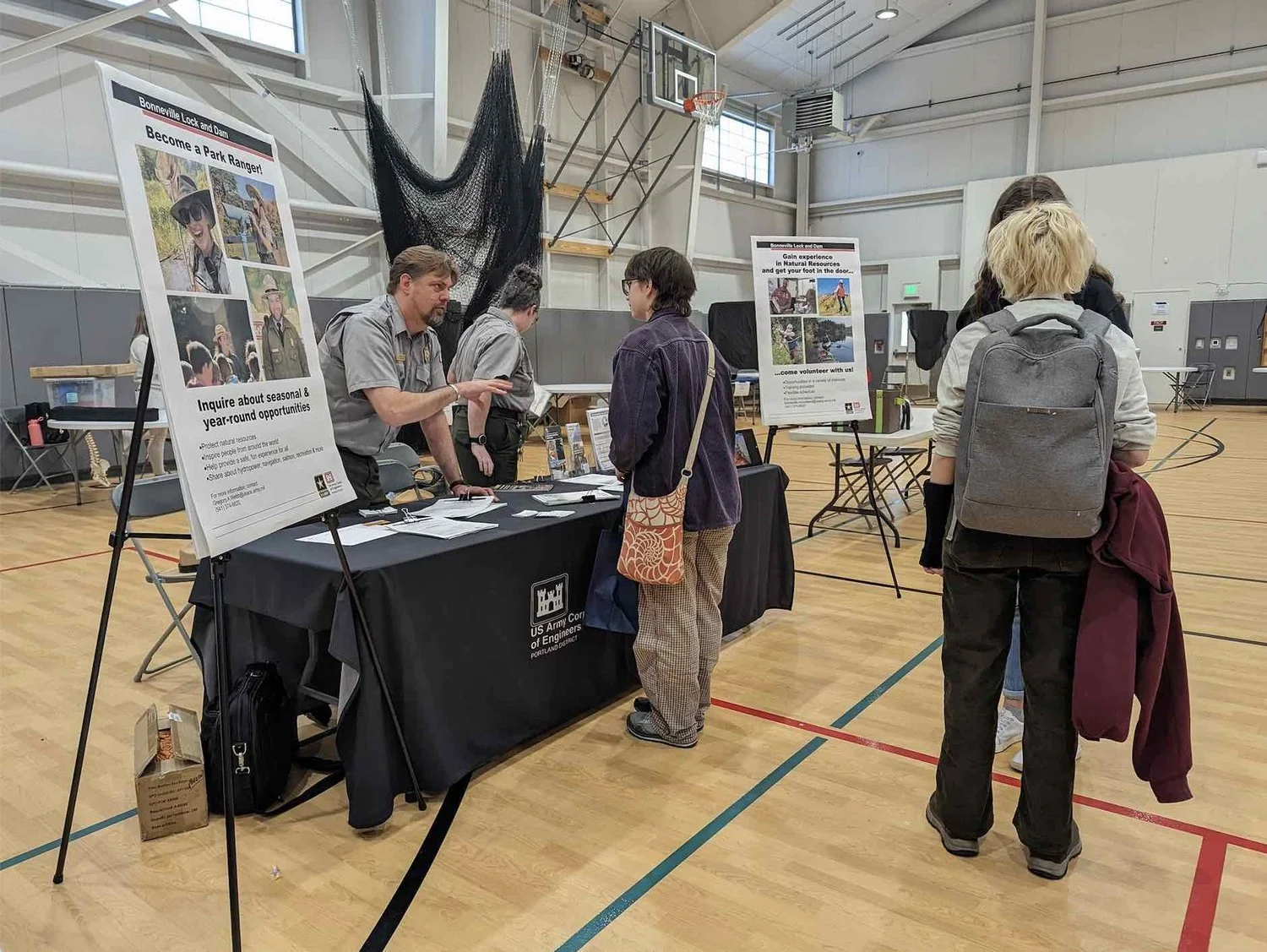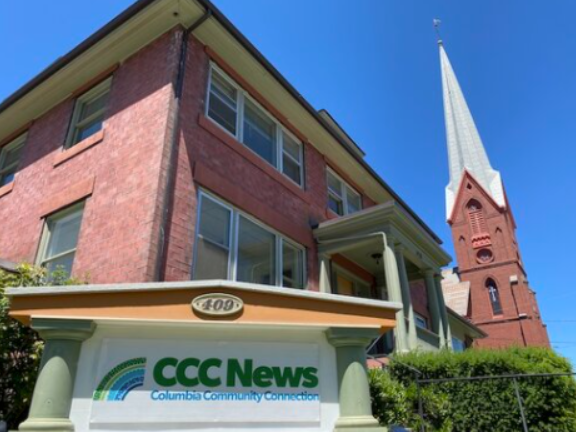Columbia High School aims to link students to mentors, AP classes to create success
Students at Columbia High School receive a presentation about chiropractic careers in Spring 2023. The school leadership is focusing on Advanced Placement, freshman success and getting students linked to mentors. Photo Credit: Cole Goodwin
By Ken Park
Advanced Placement, freshman success, and making connections are just some of the goals Columbia High School in White Salmon has set for itself for the new year.
This time of year, and at the end of the academic year, most schools will do a school improvement plan where they look at data, assess where they’re at, and figure out what areas need improvement.
CHS Vice Principal Kelly Hume explained that a continuous improvement plan is the same but it comes with the understanding that all the previously implemented plans will evolve.
“We are looking at our data right now, but we understand that it is just a snapshot, so as we put these new things in place some things will work, some won’t, and will have to evolve as we go,” Hume said in a Jan. 8 interview.
So, in truth, these are goals that the CHS administration has had in their continuous improvement plan, but this year and the 2024-2025 school year will be putting these plans into practice.
From left to right - CHS Students Cynthia Celaya, Lilliana Zamacona, Gage Ward, Destiny Lawrence, Kylie Adams, and Charlie McCourt at the Washington State Prevention Summit in Spring 2023.
At the last White Salmon Valley School District Board meeting before the winter break, Hume presented to the board some of its most recent data regarding student participation in Advanced Placement classes, helping freshmen be successful in their first year of high school and continuing the practice of making strong connections with students.
CHS Vice Principal Kelly Hume
“Students need to feel connected to their school community in order to successfully engage and thrive in the school environment. This connectedness takes many forms including participation in extracurricular activities, positive student-student and student-staff relationships, and academic engagement and achievement. By focusing on increasing participation and engagement in classes, lowering failure rates for students, particularly freshmen, and intentionally supporting struggling or isolated students, Columbia High School can increase the overall connectedness of its students thereby improving the climate and outcomes,” Hume said.
IN Spring 2023, The U.S. Army Corps of Engineers talked to a student at the Career Fair at Columbia High School. Photo Credit: Cole Goodwin
CHS first began to focus on creating meaningful connections in school through a peer mentorship program back in 2018 called Sources of Strength. The program’s primary goal is the prevention of youth suicide by ensuring that students feel connected to their school by building relationships with peers, teachers, coaches, classes, or other activities.
Research shows that the more connected students feel to others the better their physical, mental, and emotional health is and consequently the more successful they are in school and life in general.
Over the last six years, even with the impacts of COVID, the Sources of Strength program has grown and the concepts it embodies have become a priority goal for CHS.
Hume said that during COVID and after CHS administrators and teachers noticed that students seemed to have become more disconnected from each other which is why they are refocusing on connection during this school year.
“There’s a couple of things going on, particularly since COVID, we just find that students have become more disconnected from each other and from caring adults in their life,” Hume said. “ So that focus on connectedness is really about helping students find a place where they can feel they belong regardless of their race, gender, sexuality, religion, politics, any of that. That they can find some way that they are part of the community and they can contribute to it and grow from it.”
Hume also noted that because of this, engagement in the classroom and the high school environment itself looks different than it has in years past.
“It comes down to sort of reframing how we approach school and how we approach learning and what it means to have positive relationships with students,” Hume said.
CHS wants to connect with all 360 of its students but one of the goals for the coming school years is to ensure that freshmen have successful first years of high school as getting on the right track early sets them up for graduation when that time comes.
According to CHS data from the 2017-2018 school year, 90 percent of freshmen were on track to graduate in 2021. While data from the 2021-2022 school year showed that just 70 percent of freshmen were on track to graduate.
Current data shows that 79 percent of freshmen (Class of 2027) are on track to graduate.
Hume said CHS's goal is to get that back up to 90 percent by 2025.
Absences and lack of contact caused by COVID-19 created gaps in education for many students and have had an impact on graduation rates as well as students being behind when entering high school.
Hume provided the example of the Class of 2024, whose first two years of high school were essentially virtual due to COVID-19.
“They started with a huge disadvantage,” Hume said. “But even with incoming freshmen next year, they will have gaps in their education, at really formative years too. The sooner we can get them on track the better off they will be in the long run.
Though CHS is a small rural high school where most of the students have known each other since kindergarten at the least, the transition into high school is still daunting as it requires a change in thinking for the students.
Where in elementary or middle school, if students didn’t pass a class they could still advance or take the class again, whereas in high school you have to pass classes to earn credits to graduate and there are some classes that you can’t take again.
“That learning curve can be pretty steep so we’re working on not just how to make freshmen more successful, but to get them into the swing of high school,” Hume said.
Another goal that CHS is looking to achieve is encouraging more students, Hispanic and English Language Learners (ELL) in particular, to take Advanced Placement/ College Credit courses.
Currently, only 26 Hispanic and ELL students are taking AP English and Social Studies classes and only 36 are taking AP Science and Math classes.
Hume initially presented this goal at the last board meeting for the calendar year, wherein student board members asked how the administration planned to get students to sign up for these classes.
One of the student representatives to the board noted that students may be averse to joining AP classes due to the increased workload.
“Some of it is just a matter of encouragement,” Hume said. “It’s saying to a student, ‘Hey, you did so well in your world history class, you should consider taking AP U.S. History.’
‘Is it going to be hard work?’
‘Yes, but think of it like exercising, that work is going to be hard now but it’s going to pay off later.’”
Another student representative noted that current school schedules may not allow for students interested in AP classes to sign up.
“We are on five period day and while that has some great benefits there are disadvantages like less flexibility when it comes to when we can schedule things,” Hume said.
The student representative did recommend that AP classes be moved to the middle of the day so that students who work in the afternoons or have other obligations in the mornings have a greater opportunity to join AP classes.
“I appreciated what he said because that’s the kind of student perspective that we need when looking at these goals,” Hume said.
Support Local News
Available for Everyone; Funded by Readers

